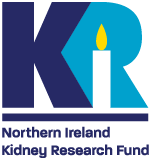📢 Calling all kidney healthcare professionals!
📢 Calling all kidney healthcare professionals!
Queen’s University Belfast are running a study on kidney transplant failure and want to hear your views. If you’re working in kidney care (with at least 3 months’ experience), you can take part in an online focus group or interview.
📧 Interested? Contact Xingge Sun at xsun10@qub.ac.uk




